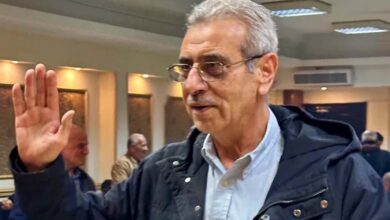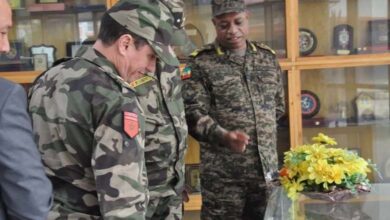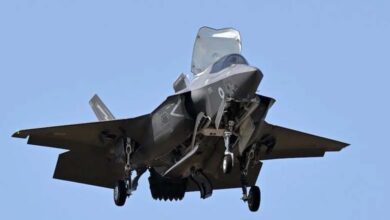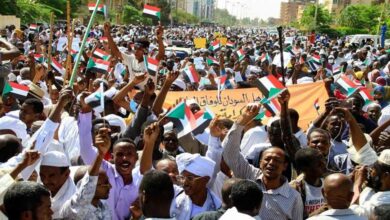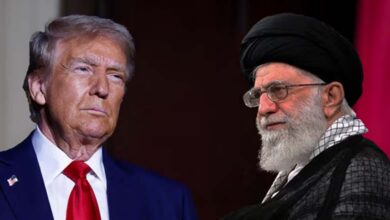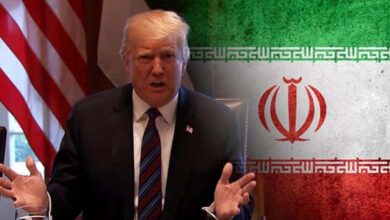U.S. Warning on Lebanon’s Return to the Levant Sparks Controversy
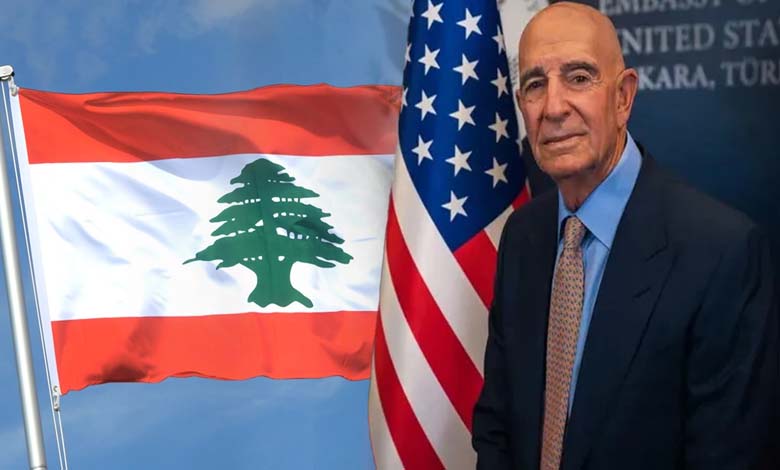
A warning by U.S. envoy to Syria, Thomas Barak, suggesting that Lebanon could become part of the historical region known as the Levant (“Bilad al-Sham”), has stirred widespread debate in Lebanon. Some consider it an attempt to pressure the country into disarming Hezbollah, while others interpret it as a sign of the Lebanese state’s failure to fulfill its responsibilities.
-
Disarming Hezbollah: Lebanon Still Has Much to Do
-
Religious Chant Leader Accused of Spying for Israel and Bringing Down Hezbollah Officials
In remarks to The National newspaper, Barak stated: “Lebanon must address the issue of Hezbollah’s weapons, or it could face an existential threat… it may return to being part of the Levant.”
He added, “On one side is Israel, on the other is Iran, and now Syria is rapidly emerging. If Lebanon does not act, it will become part of the Levant again,” hinting at a potential loss of sovereignty and increasing external influence.
Barak noted, “The Syrians say: Lebanon is our coastal resort. So we need to act. I understand the frustration of the Lebanese people. It frustrates me too.”
-
Between Washington and Tel Aviv… Is UNIFIL nearing the end of its mission in Lebanon?
-
In Response to Aoun.. Israeli Defense Minister Sets Condition to Halt Strikes on Lebanon
The comments sparked outrage within Lebanese political circles. While some perceived them as a warning, others saw them as a sign that Barak views Lebanon and Syria as diplomatically intertwined, both needing to follow a shared path.
In response to criticism, Barak clarified on X: “My praise for Syria’s progress is not a threat to Lebanon, but rather a reflection of the new regional reality.”
He explained that Damascus had taken advantage of eased U.S. sanctions to attract investments from Turkey and Gulf countries, deepen diplomatic ties, and outline a vision for the future. He insisted that Syria seeks peaceful coexistence and shared prosperity with Lebanon based on mutual sovereignty, and affirmed that the U.S. supports such a relationship.
-
Dismantling of Most of Hezbollah’s Military Sites in Lebanon: Flexibility or Manoeuvre?
-
Neutralizing Beirut: Lebanon Seeks Understanding with Israel after Saturday Escalation
Political analyst Toni Boulos said Barak’s message implied that Syria could act to secure its borders several kilometers inside Lebanon if Beirut failed to address Hezbollah’s presence, which it sees as a threat.
The same applies to Israel, Boulos warned, as inaction on Hezbollah’s weapons could give Israel a pretext to intervene deeper into Lebanese territory.
He also warned that Hezbollah’s unique military capabilities destabilize internal Lebanese politics, as no other party holds arms.
-
Washington and Riyadh Support ‘Third Option’ to End Lebanon’s Presidential Vacancy
-
Suffering of Returning Southerners… Lebanon’s Homes Destroyed Due to Bombings
Barak is expected to return to Beirut in two weeks and may inform local leaders that Washington is losing patience with Lebanon.
According to Boulos, the failure to respond could isolate Lebanon and leave it “like a giant prison.”
The remarks came days after Barak’s visit to Beirut, where he submitted a U.S. proposal calling for the full disarmament of Hezbollah in exchange for reconstruction aid and an Israeli ceasefire. Beirut has yet to officially endorse the proposal but submitted alternative suggestions.
Shortly after, Hezbollah official Naïm Qassem stated in a televised speech that the group would not disarm until Israeli “aggression” ends.
-
Following Approval from Iran and Israel: Ceasefire Negotiations in Lebanon Enter Final Stages
-
From Basta to Bazourieh: Hezbollah Strongholds “Ignite” Lebanon
Despite a ceasefire reached on November 27, 2024, Israel has violated it over 3,000 times, according to Lebanese data, and continues to occupy several strategic hills and long-held territories in southern Lebanon.
Analyst Tawfiq Chouman interpreted Barak’s statements as part of “maximum pressure” tactics related to Hezbollah’s weapons. He expects pressure to increase throughout the 90-day period mentioned during Barak’s last visit, aimed at limiting weapons within Lebanon.
-
Ending the Lebanon War: A “Green Light” Awaits a “Settlement” from Both Sides of the Conflict
-
Israel plans to expand its ground operations in southern Lebanon
However, Chouman dismissed the idea of Syria returning to Lebanon, noting that no political faction currently calls for such intervention, and Syria today is not in the same position it was during the 1970s, when international consensus supported its involvement.
Historically, “Bilad al-Sham” refers to the region stretching from southern Turkey to the Sinai and from the Mediterranean to Iraq. During Islamic and Ottoman rule, Lebanon was administratively integrated into this region. Under the French Mandate, modern national borders were drawn, and Greater Lebanon was declared on September 1, 1920, with Beirut as its capital.


